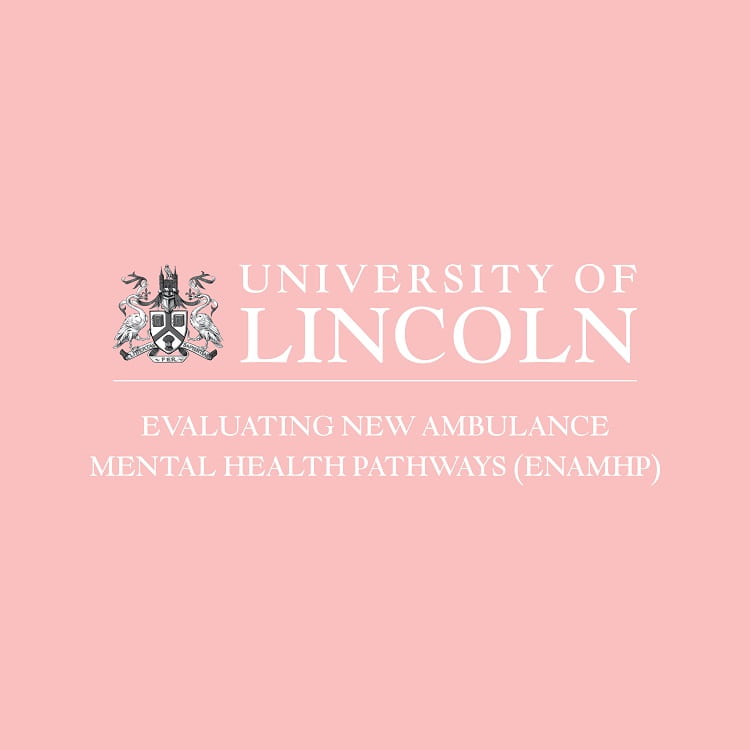Prof Niro Siriwardena and Dr Gupteswar Patel from CaHRU successfully secured funding from NIHR Applied Research Collaboration East Midlands for a new study, Evaluating New Ambulance Mental Health Pathways (ENAMHP), to work with mental health care providers, a lived experience panel, and public representatives and patients, to understand the current state and develop recommendations for the future emergency mental health care in the East Midlands.


Numbers of patients calling 999 emergency medical services with mental health problems has increased, placing higher demands on ambulance services to respond. Ambulance crews in England spend 1.8 million hours annually, which is equivalent to 75,000 days, to respond to patients with mental health issues. Severe Mental Illness (schizophrenia, bipolar disorder, personality disorders, and severe depression) affects around 551,000 people in England. In the East Midlands, 16.7% of the population reported experiencing mental health conditions in 2014.
In order to respond to the increasing demand, the East Midlands Ambulance Service NHS Trust (EMAS) has implemented innovative mental health services, since September 2022, which include four components: mental health training for frontline staff; Registered Mental Health Nurses (RMNs) within Emergency Operation Centres (EOCs); dedicated Mental Health Response Vehicles (MHRVs) staffed by RMNs and paramedics; and new pathways to mental health services. Despite these significant changes, the mental health outcomes, cost-analysis , and functioning of these pathways within the context of EMAS remain uncertain.

This research aims to evaluate the effects of the new emergency mental health provisions in the East Midlands. The objectives are:
WP1 – A qualitative interview is ongoing, which aims to explore stakeholders’ (patients, relatives, RMNs, ambulance staff, commissioners, and psychiatrists and mental health nurses’) experiences and perceptions of the new mental health services provided by Emergency Medical Services with community and specialty mental health services in East Midlands.
WP 2 – To investigate the numbers and types of 999 mental health emergency calls, response time, types of mental health conditions, and RMNs attendance.
WP 3 – To evaluate the costs and consequences of the new mental health services.
WP 4 – To assimilate and integrate data from WP1-3 to develop recommendations for future services.
This project will generate evidence and inform policy- and decision-makers at EMAS to improve mental health services in the region, to enable sustainability and spread of effective services
